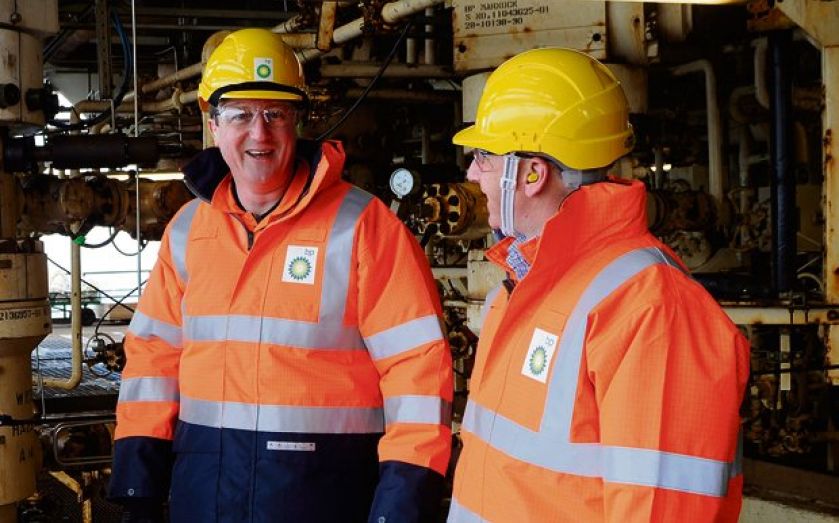Cameron heads to Scotland as oil debate rages

THE ROW over North Sea oil and its place in the Scottish economy intensified yesterday after David Cameron moved his Cabinet meeting up to Aberdeen, just five miles from where Alex Salmond was holding his own.
The decision by the Prime Minister to head to Scotland was timed to coincide with the release of the Wood report on making the most of the North Sea’s oil and gas.
It calls for a new regulator for the industry.
Energy reserves play a big role on both sides of the Scottish independence fight.
The PM has told the Scottish government that it would be too big a risk to shoulder the volatility of the oil and gas markets alone.
Alex Salmond, leader of the pro-independence Scottish National Party, yesterday cited Norway as an example of a small nation that has mitigated the risks and generated wealth.
Salmond called it a “wasted opportunity” that the two leaders did not meet, adding: “The UK Cabinet has come to Aberdeen but they’re not going to have any public discussion or access. If at any point David Cameron walks in, I am available for this debate.”
Cameron has refused on the grounds that he cannot vote in September’s referendum.
Malcolm Webb, the chief executive of Oil & Gas UK, said he is “worried about the industry becoming a political football for the independence debate”, and has called for more tax breaks.
THE WOOD, THE BAD AND THE UGLY
The report from oil veteran Sir Ian Wood recommends a new arm’s length regulator, separate to the government, to oversee the UK’s oil and gas interests.
Wood said the suggestions in the report would boost the UK economy by £200bn over the next 20 years, through the recovery of an extra three to four billion barrels of North Sea oil and gas.
“I fully back Sir Ian Wood’s recommendations and we will start implementing them immediately,” said energy secretary Ed Davey yesterday.
The government is eager to fast-track the plans. It wants the new regulator to have a chief executive by the summer and will bring in some kind of shadow regulation by the autumn.
The regulator will work with the government and industry to develop new strategies for issues such as exploration, infrastructure and decommissioning.
The industry is likely to pay for the regulator, although firms feel the government should cover part of the cost.
The regulator will have expanded powers, such as dispute resolution.
“To recruit a large number of people with industry expertise for this new regulatory body will be tricky when there is such a skills shortage,” said Judith Aldersey-Williams, partner at CMS.
Graham Stewart, chief of Faroe Petroleum, warned uncertainty around a regime change could cause investors to delay making decisions on the North Sea.